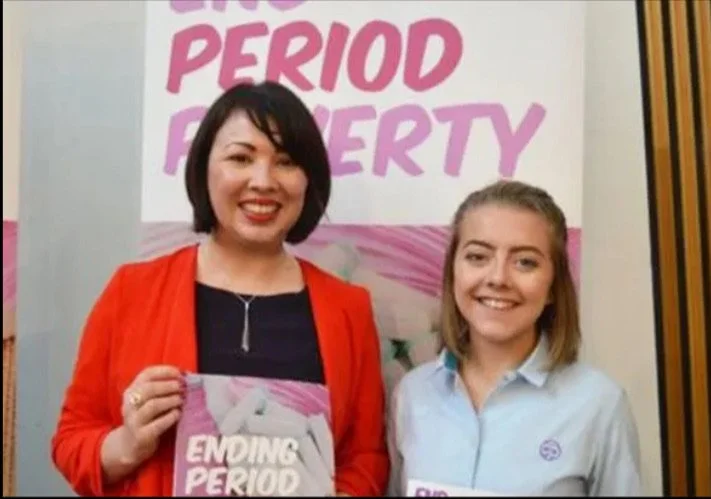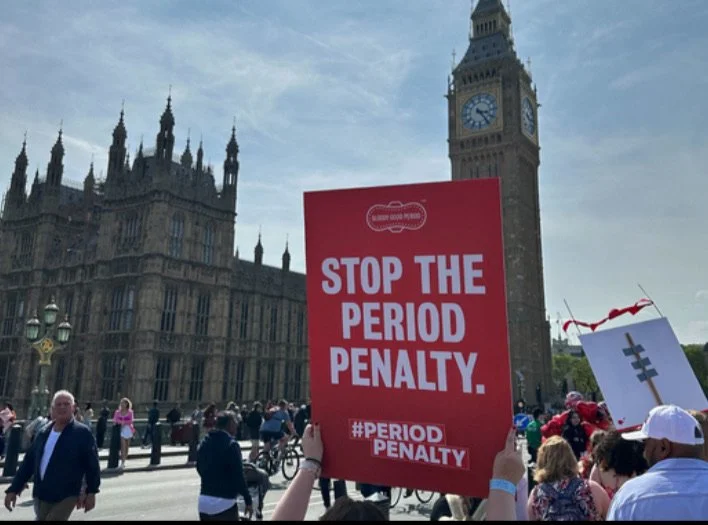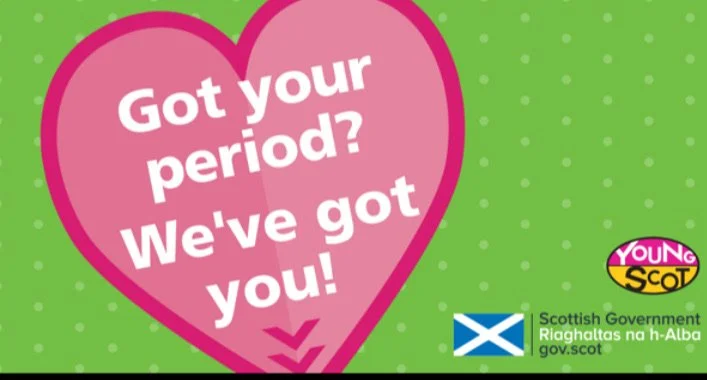Mind the Gap: the UK’s divided approach to period poverty
Though at LGOKIAT our focus is on tackling and raising awareness of Pant Poverty, the issue of period poverty is never far from our minds, and repeatedly comes up in the fundraising we do. Over 500 million women and girls worldwide live in period poverty, and in this article we will explore how much closer to home this issue rests than many people anticipate.
Two years ago (in 2023), Action Aid released a study that found that the number of women living in England in period poverty had almost doubled since 2022 – rising from 12% to 21%. Other statistics tell a similarly depressing story: a 2018 Scottish survey found that 1 in 4 school age girls struggled to access period products when they needed them and another recent Action Aid study concluded that 41% of women used menstrual products for longer than the recommended time to avoid having to purchase more. These harrowing statistics paint a picture of the UK, a seemingly progressive Western country, and the failings of the government to support and protect half of their population from period poverty.
However, there has been an effort towards sustained change by the devolved Scottish government. In 2021, through the ‘Period Products Act’, Scotland became the first ever country to tackle period poverty head on and make sanitary products permanently available to all who need them, free of charge. The act specifically required all local authorities and education providers to always make a range of period products readily available in public locations (such as schools and leisure centres), and for people to be able to obtain them in a dignified manner.
The positive impact of this ruling on the mental and physical wellbeing of women menstruating in Scotland has been evidenced: women will be less likely to miss out on educational and workplace opportunities due to lack of access to period products, and there are suggestions that reducing the financial anxiety and stress of having to afford products will also hold long term benefits for women. There are also the health aspects: prior to this act, an Action Aid study found that 37% had created makeshift period products out of cotton wool or tissues and 8% reused disposable products. These methods of reducing the amount of sanitary products used (and therefore bought) come at a health cost, with women risking dangerous infections such as Toxic Shock Syndrome. With the improved access to free sanitary products, this has served to minimise these risks.
Though this act has without doubt made significant positive change, it would be wrong to believe that it has solved the problem completely. Instead, this is only the beginning of the journey in tackling period poverty. Even the journey that led to the passing of the Bill was not smooth sailing: Labour MSP Monica Lennon spent over 10 years campaigning against period poverty and attempting to introduce a similar bill into the house before it was finally approved. Furthermore, the 2018 survey mentioned above, as well as Action aid research stating that women aged 18-24 are the least likely to be able to afford period products (and thus would face the wider negative impacts such as missing school), evidences how dire the situation became before the Scottish government felt the need to act on it. This suggests how secondarily period poverty is taken as an issue by our governments. Scottish women's groups in large cities such as Glasgow claim that there are a lot of teething issues that still need to be ironed out. They argue that there is not enough promotion of the act, and that due to its reliance on an app, the implementation of the act excludes those who do not have internet access or literacy.
Yet the 2021 ‘Period Products Act’ has failed to make an overt influence across the border in England. When researching both the current and previous governments’ stance of period poverty, the focus tends to reside mostly on improving education on the menstrual cycle and therefore reducing the stigma. Though this is undeniably an important aspect of period poverty that needs tackling, it could be argued that the government fails to back this beyond theory. In the last five years, the two most significant pieces of legislation that relate to period poverty were the 2020 introduction of free products into state primary and secondary schools, and the collection of VAT on period products being reinvested into relevant charities. Though both small steps in the right direction, it could easily be argued that in comparison to Scotland, the government’s attempts at ‘solving’ period poverty are pitiful. The reinvestment of VAT into period poverty charities rather than just removing the tax appears to miss the point in benefiting the regular consumer. Furthermore, the BBC reports that one way in which local authorities saved over £3billion in 2024 was through the removal or stripping back of period poverty services in their areas, and there have yet to be any plans made to reintroduce these schemes. This outrageous statistic only serves to further evidence how far down the list of priorities the health and wellbeing of women are to the English Government and civil service.
Womenkind Worldwide describe period poverty as a “silent epidemic”, and the figures referenced in this article only further amplify this, as well as acting as a stark reminder of the scale of the problem even in a seemingly progressive country. Though Scotland’s 2021 decision is without doubt impressive, it is still important to ask why it took them so long to reach this decision, especially with the high numbers of women struggling with period poverty, and to highlight the flaws within the scheme that prevent it from benefiting the most vulnerable within society. Moreover, the English Government’s complete lack of commitment to a scheme that benefits a wide cross section of women, and the allowance of local councils to scale back their efforts to reduce period poverty, begs the question: when will this issue be taken seriously, both globally and by our own local representatives?
Written by Emma Cowan, Edited by Valentina Milne and Serena Chamberlain




